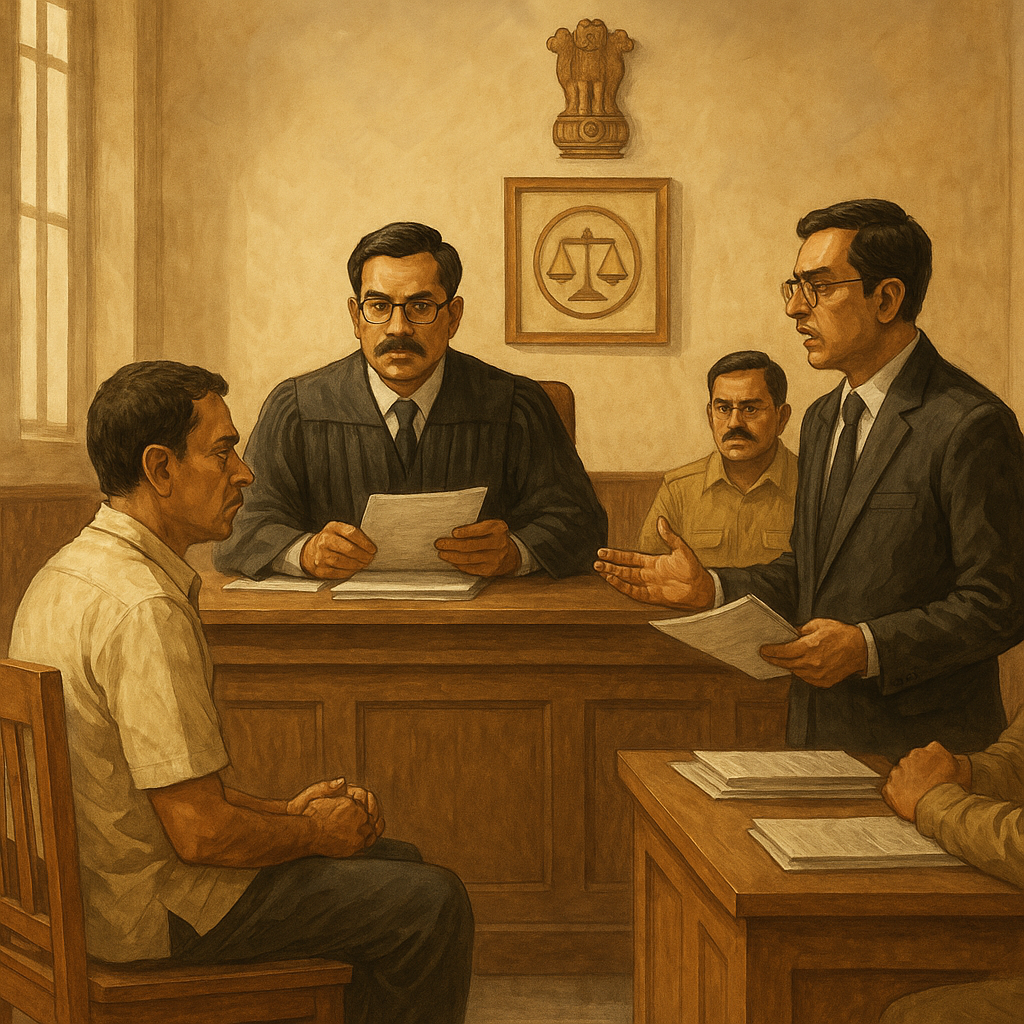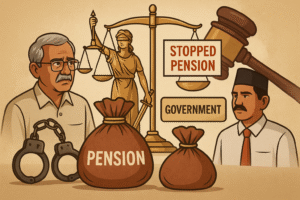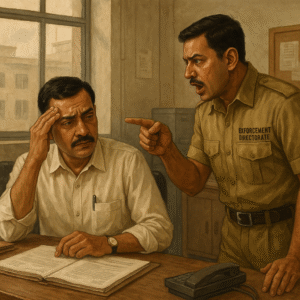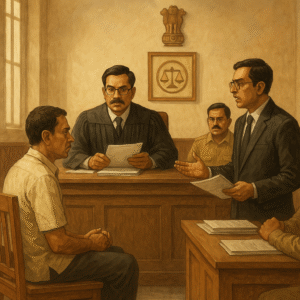The Patna High Court has reiterated that a departmental inquiry cannot be treated as an empty formality and that punishment orders must be reasoned (“speaking”). In this case, the Court set aside the dismissal of a government employee and remitted the matter to the disciplinary authority for a fresh, lawful decision after giving the employee a proper opportunity of hearing. The oral judgment was delivered on 22 June 2021 by Hon’ble Mr. Justice Anil Kumar Upadhyay.
The petitioner had challenged the dismissal primarily on three grounds: (i) the dismissal order was not a speaking order; (ii) the charges were vague; and (iii) the inquiry was conducted without examining any witness or proving documents to establish the charges. Counsel argued that the inquiry officer’s findings were perverse and that even the appellate order was a mere formality.
The High Court accepted the broad legal principle that a disciplinary proceeding is not a ritual. It relied on the Constitution Bench decision in Union of India v. H.C. Goel (AIR 1964 SC 364), emphasising that suspicion cannot substitute proof even in domestic inquiries. The reproduced extract from H.C. Goel highlights that while criminal-trial technicalities do not rigidly control departmental inquiries, the underlying safeguard—ensuring the innocent are not punished—applies with equal force.
The Court further clarified the standard of proof: in disciplinary proceedings it is the preponderance of probability, not “beyond reasonable doubt” as in criminal cases. Even so, case-like rigor must be observed in conducting the inquiry. This balanced articulation—lighter proof threshold but fair process—anchors judicial review of disciplinary punishments.
On the facts, and to maintain consistency with earlier decisions in analogous matters (referred to as Annexures 9 and 11), the Court quashed both the punishment order (Annexure 6) and the appellate order, and remanded the case to the disciplinary authority to pass a fresh order in accordance with law. The Court expressly directed that the authority follow the Supreme Court’s decision in Managing Director, ECIL v. B. Karunakar (1993) 4 SCC 727, which mandates supply of the inquiry officer’s report and a meaningful opportunity to represent before the final decision.
In plain terms, the High Court’s intervention means: the dismissal does not stand as of today; the matter goes back to the department; and the department must redo the decision-making properly—give the employee a fair hearing, consider the law on supply of the inquiry report, and then pass a reasoned order. This ensures that departmental authorities do not treat inquiries as rubber-stamp exercises but as genuine, evidence-based processes.
Why this matters: a “speaking order” is not a mere formality. It is the written demonstration that the authority applied its mind to evidence, considered the employee’s defence, and reached a conclusion on admissible material. Where no witness is examined, and no document is proved, an inquiry risks being labelled perfunctory. Conversely, when authorities proceed with fairness—examining witnesses, proving documents, and recording reasons—their decisions are likely to withstand judicial scrutiny.
Finally, the High Court’s reference to ECIL v. Karunakar is crucial: unless the delinquent employee is supplied the inquiry officer’s report and allowed to respond before punishment is imposed, the punishment is vulnerable. The remand in this case specifically asks the authority to comply with that requirement.
Overall, this judgment strengthens procedural fairness in service law, especially for government employees facing dismissal. It reminds departments in Bihar that fairness is not optional—it is integral to the legitimacy of disciplinary outcomes.
Significance or Implication of the Judgment (For general public or government)
This ruling is significant for both employees and government departments in Bihar:
- It reaffirms that departmental inquiries must be real, evidence-driven processes. Authorities should examine relevant witnesses, prove documents, and assess evidence logically—mere suspicion is not evidence.
- It underscores the duty to pass a speaking order, showing reasons and application of mind, thereby enabling effective appellate or judicial review.
- It clarifies the standard of proof—preponderance of probability—while insisting on procedural rigor akin to a “case-like” process.
- It operationalises ECIL v. Karunakar in day-to-day disciplinary actions: supply the inquiry report and offer a meaningful chance to respond before deciding punishment.
Legal Issue(s) Decided and the Court’s Decision with reasoning
- Whether a departmental proceeding can be treated as an empty formality
• Court’s view: No. Departmental inquiry is not a ritual; it requires proof on record and fair procedure, following H.C. Goel. - Whether suspicion can substitute proof in disciplinary inquiries
• Court’s view: No. Suspicion is not evidence; findings must rest on some evidence. (H.C. Goel extract relied upon.) - What is the applicable standard of proof in departmental proceedings?
• Court’s view: Preponderance of probability, but with case-like procedural rigor. - Validity of non-speaking punishment and appellate orders
• Court’s view: Punishment order (Annexure 6) and appellate order quashed due to lack of proper reasoning and process; matter remanded. - Requirement to comply with ECIL v. Karunakar
• Court’s view: On remand, the authority must follow Karunakar and take a fresh decision after giving an opportunity of hearing.
Judgments Referred by Parties (with citations)
- Union of India v. H.C. Goel, AIR 1964 SC 364 (cited to emphasise that suspicion cannot replace proof; extract reproduced).
Judgments Relied Upon or Cited by Court (with citations)
- Union of India v. H.C. Goel, AIR 1964 SC 364 (Constitution Bench; departmental proceedings not an empty formality; suspicion ≠ evidence).
- Managing Director, ECIL, Hyderabad v. B. Karunakar, (1993) 4 SCC 727 (supply of inquiry report and opportunity before punishment).
Case Title
Ram Nandan Pandit v. State of Bihar & Ors.
Case Number
Civil Writ Jurisdiction Case No. 2185 of 2017.
Citation(s)
2021(3) PLJR 10
Coram and Names of Judges
Hon’ble Mr. Justice Anil Kumar Upadhyay.
Names of Advocates and who they appeared for
- For the petitioner: Mr. Awadhesh Kumar Mishra, Advocate.
- For the respondents (State): Mr. Prabhat Kumar Verma, AAG-3.
Link to Judgment
MTUjMjE4NSMyMDE3IzEjTg==-RMK4L4Ss4nE=
If you found this explanation helpful and wish to stay informed about how legal developments may affect your rights in Bihar, you may consider following Samvida Law Associates for more updates.








